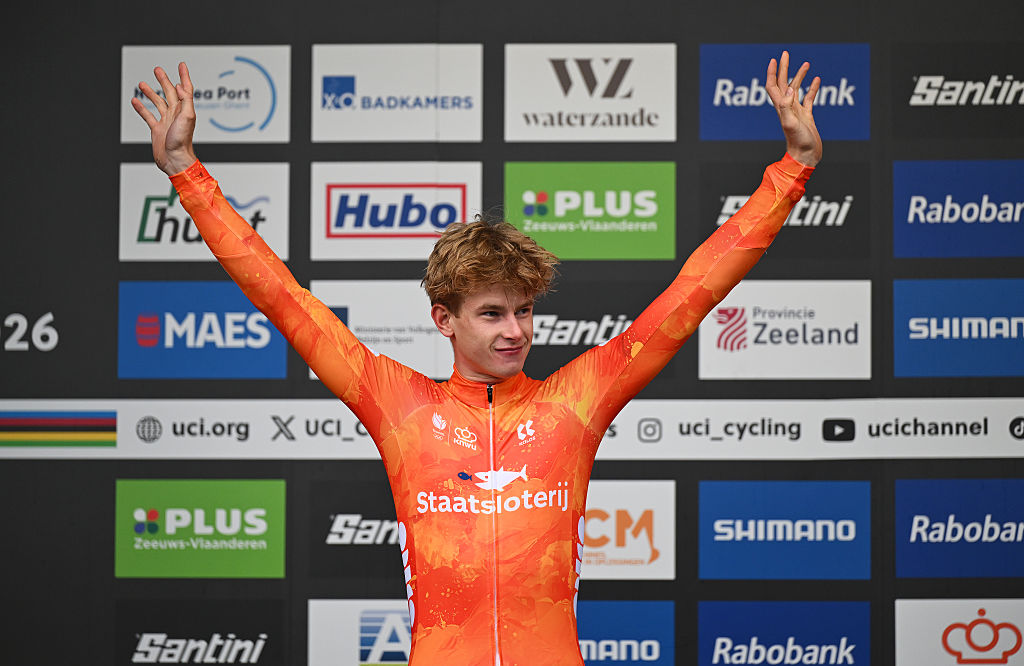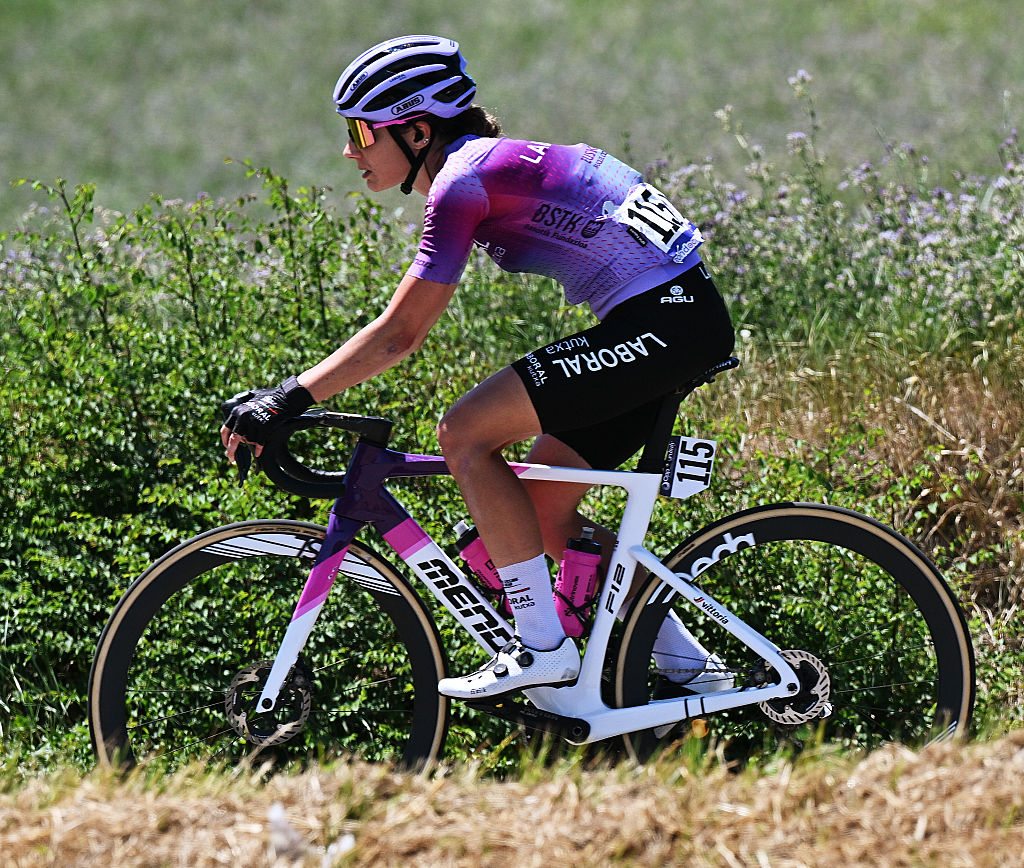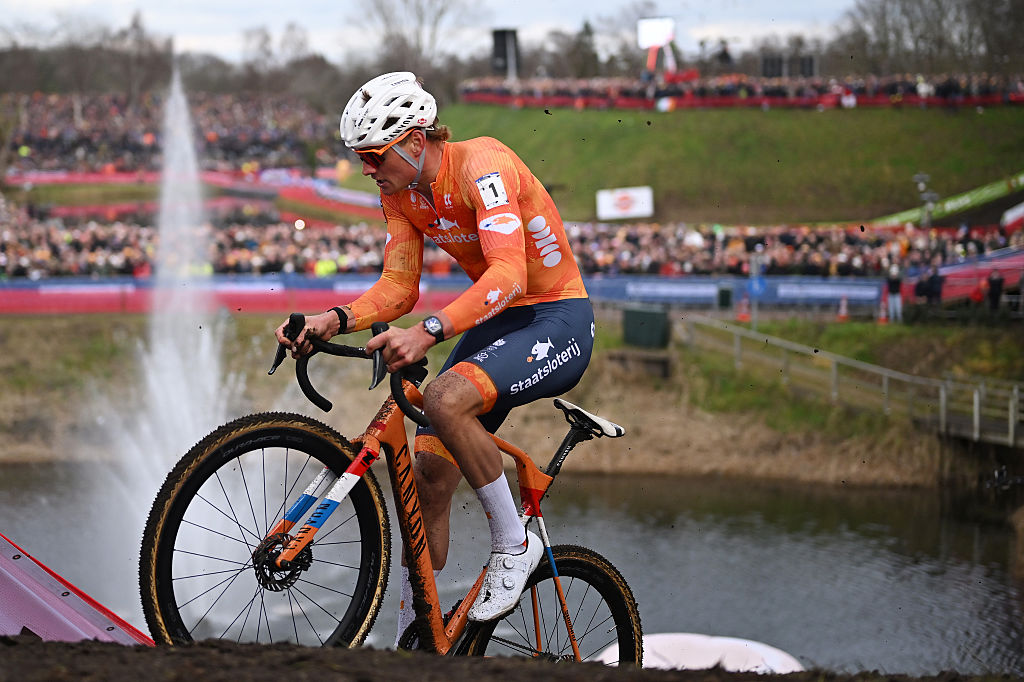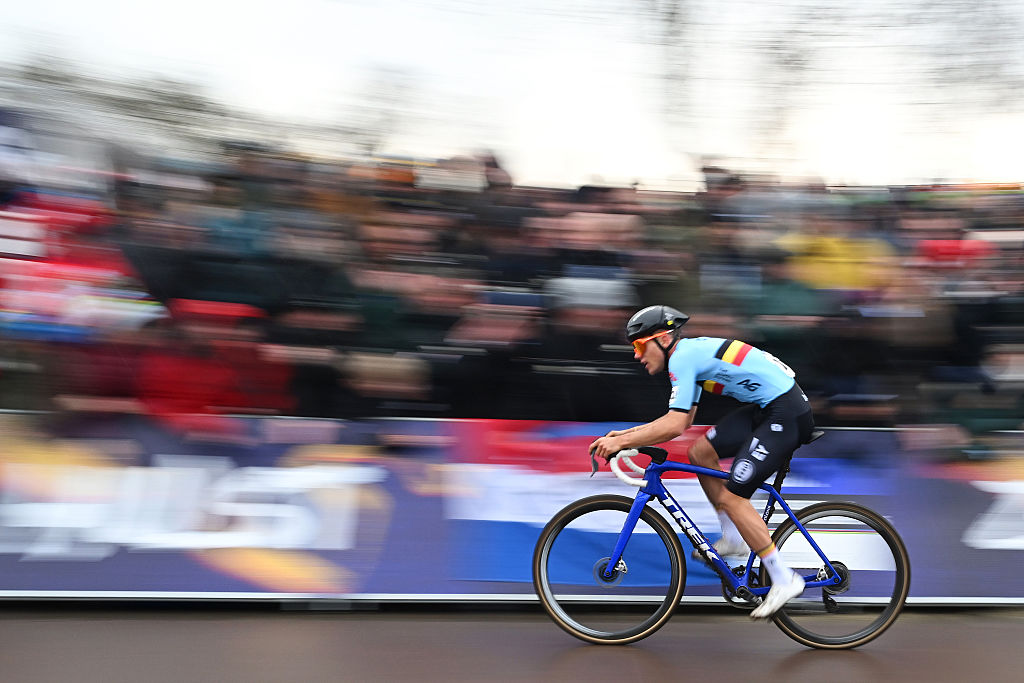Vuelta a España hits heights at Col du Tourmalet - Stage 13 preview
'If the big boys see any sign of weakness in their opponents, these are the stages where they'll go for the maximum' says Gesink
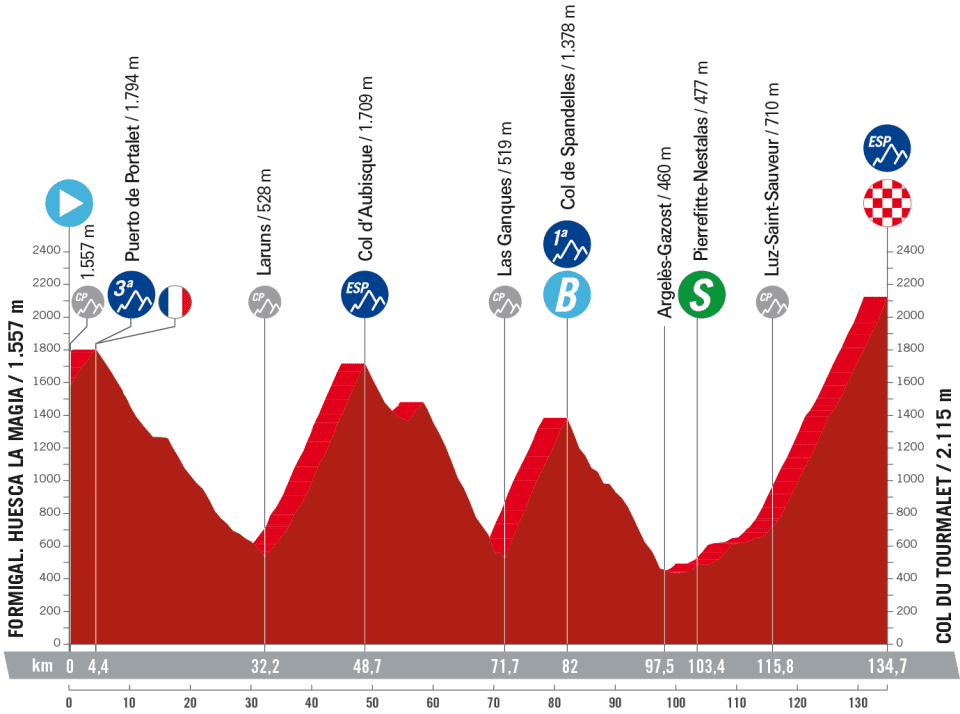
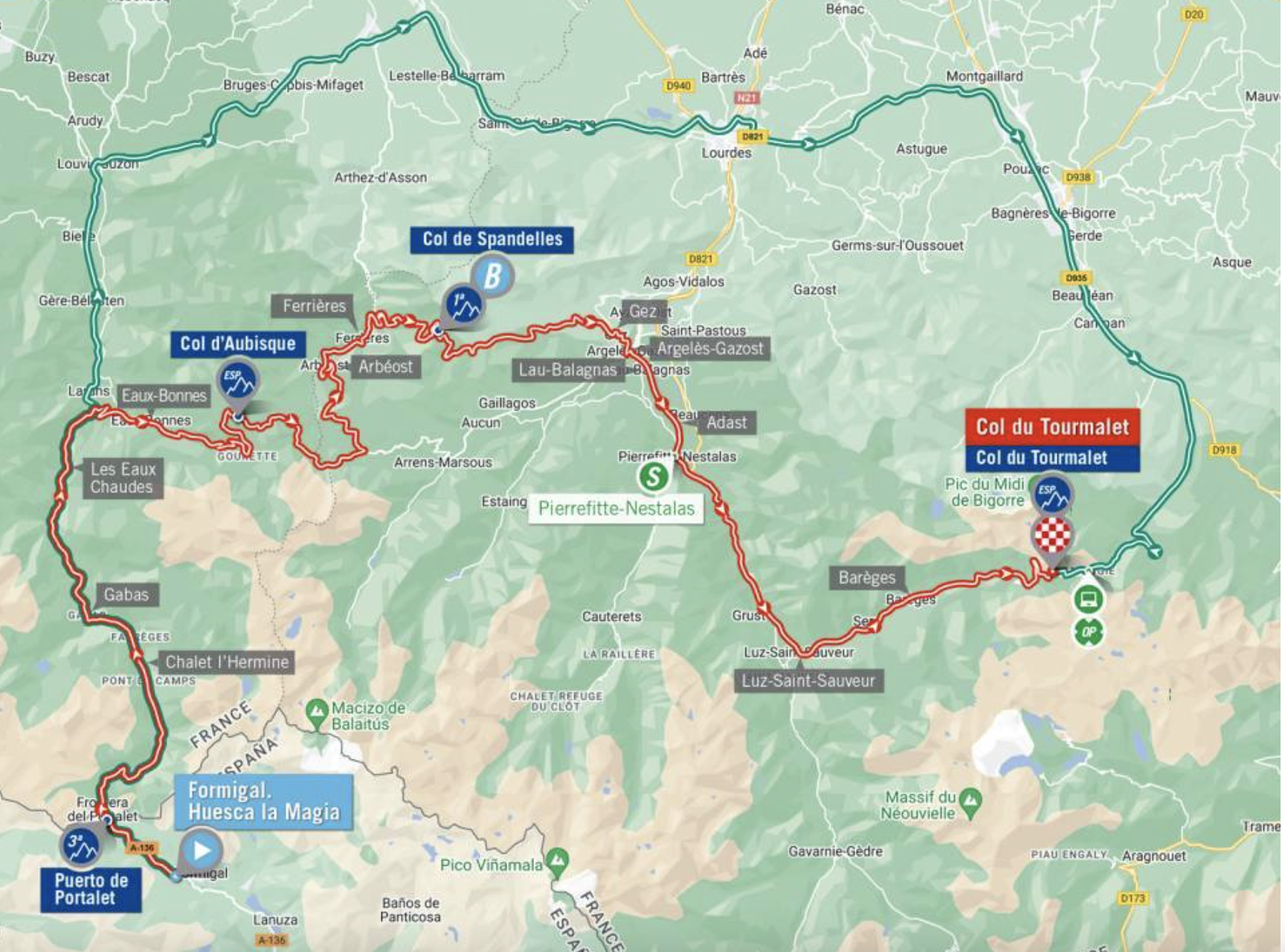
Stage 13: Formigal - Col du Tourmalet
Date: September 8
Distance: 135km
Stage type: Mountain
The last time the Vuelta a España passed over the Col du Tourmalet in 1995, the race was more than settled. Overall winner Laurent Jalabert, who subsequently triumphed later on that day on Luz Ardiden - and on virtually every key summit finish of that year's race - was already more than six minutes ahead of second-placed Abraham Olano. With the Frenchman's ONCE teammate, Johan Bruyneel, running third, the Spanish squad had the Vuelta in a stranglehold.
Fast forward 28 years to the Vuelta's first-ever summit finish on the Tourmalet this Friday, and the situation in the Vuelta GC could hardly be more different. As the five-time Tour de France champion Miguel Indurain told Cyclingnews after the Valladolid time trial, "Now is when the race really starts. Up to now, the climbs have been difficult, but nothing in comparison to what's to come in the Pyrenees and Asturias."
The top segment of the GC, albeit now lacking some top pre-race contenders like Geraint Thomas, reflects that equality between the top names. After 12 days of racing, no fewer than 11 riders, from race leader Sepp Kuss (Jumbo-Visma) through to Mikel Landa (Bahrain Victorious) are separated by a margin of just over three minutes, and all are, at least on paper, within striking distance of la roja.
The latest race content, interviews, features, reviews and expert buying guides, direct to your inbox!
Jumbo-Visma, with two stage wins and three riders in the top seven - Kuss, three-time Vuelta winner Primož Roglič, and two-time Tour de France champion Jonas Vingegaard - are currently established as the team to beat. But on a day as tough as stage 13, with three monster Pyrenean climbs on the menu in the 2023 Vuelta's first full day of climbing, there's no predicting what the GC will look like by Friday evening.
It's striking that with a total of 4,020 metres of climbing, stage 13 does not contain the most elevation gain of the 2023 Vuelta. That particular 'honour' goes to stage 18 next week in the mountains of Asturias with 4,200 metres. But stage 13 is only 134 kilometres long, compared to stage 18's 179km, and no sooner does the race begin at Formigal than the riders face a category 3 climb, the Puerto du Portalet, that takes them over the border into France. Apart from a small segment of some 15 kilometres of easier terrain after the descent of the Spandelles, the second climb of the day, between the town of Argeles-Gazost and the foot of the Tourmalet, there is barely a metre of flat all day.
"Obviously, it's going to be a brutal stage," Roberto Gesink, the veteran Jumbo-Visma domestique and winner on the Col d'Aubisque in the 2016 Vuelta a España, the last time the race had a summit finish in the French Pyrenees, tells Cyclingnews. "That's even if the weather is supposed to be good. I did the Tourmalet summit finish in the 2010 Tour" - finishing fifth, Ed. - "when it was rainy and misty and that was a really different story."
While Gesink logically has good memories of the Aubisque, the first major climb of stage 13 on Friday, back in 2016, the entire stage totalled more than 5,500 metres of climbing and was nearly 200 kilometres long.
"This one is much shorter, and that will make it something very interesting, and different, too. For the riders means it's either up or down all day, and the consequence of that is that rather than having time to recover properly, it's going to be a key stage of the Vuelta."
As for the Tourmalet, the riders will tackle the western side. This is reputedly easier, although at 18.9 kilometres long with an average gradient of 7.4%, and with the steepest part the last two kilometres where the gradient never drops below 9%, the difference between easier and harder is most definitely relative.
"This is also different to the Pyrenean climbs further south in Andorra," Gesink points out, "they're almost all steepest at the bottom, here it's at the top.
"All I remember of the Aubisque in 2016, for example, was one big suffer-fest. But these climbs, too, hold good memories for me - like the time we won in 2018 in the Tour in the Pyrenees with Primoz [at Laruns - Ed.] after going over the Aubisque and Tourmalet.
"It'll be very different racing in the Vuelta in Spain to what it's like doing these climbs in the Tour. But in any case - the way we're racing now, here, and with the team we have, I think we'll be ready for anything."
A victory on the Tourmalet is such an important win, it's something for any pro to tell the grandchildren, Gesink agrees. As for which Jumbo rider it might be who crosses the line first, he says, half-jokingly "Sepp and Primož have each taken a Vuelta stage now this year, so now it's up to Jonas."
Quite apart from the prestige of winning on the Pyrenees, such a win would have a rarity value, too, as a major Pyrenean stage in France in the Vuelta is relatively unusual, Gesink points out. This stage was first due to form part of the 2020 Vuelta, but frontier restrictions due to the pandemic meant it was replaced with a stage that started and finished inside Spain, at Formigal. Further south, Andorra has a much longer history of hosting stages in the Vuelta - in 2019 and 2015 there were entire stages run through the principality's mountains - but the Vuelta only began visiting the French side of the Pyrenees in 1992, including the Tourmalet that year.
As for whether the Tourmalet will have a greater influence long-term in the Vuelta outcome than the other daunting summit finish of the Angliru, Gesink says "It might do. Both stages are super short, in terms of total distance, which makes the climbing more intense. But the most important thing is if the big boys see any sign of weakness in their opponents, these are the stages where they'll go for the maximum.
"Take the Javalambre in the first week, for example. It wasn't a really hard climbing day, but Remco wasn't having a good time, so all of a sudden he lost 30 seconds. Who would have expected that?
"That wasn't a stage where we were going flat out from the start, either. But on these ones, here in the Pyrenees, we'll test Remco and his team wherever we can."
Gesink says that the all-out battle for the Vuelta between some of the top WorldTour teams this year is a culmination of a series of changes in the race's nature and participation.
"Things have changed a lot at the Vuelta," Gesink said. "In my early years as a pro" - he started in 2007 - "the field was a lot weaker and the Vuelta was different in terms of teams working towards it. But especially in this team this year, it's become a big goal, with Primož and Jonas and now maybe Sepp as well in the mix, and that's fun to be part of.
"Remco, too, is at an incredible level, we already saw that at San Sebastian and the Worlds that he's at his top condition. So now it's up to us to see if he's at his highest level over three weeks."
Alasdair Fotheringham has been reporting on cycling since 1991. He has covered every Tour de France since 1992 bar one, as well as numerous other bike races of all shapes and sizes, ranging from the Olympic Games in 2008 to the now sadly defunct Subida a Urkiola hill climb in Spain. As well as working for Cyclingnews, he has also written for The Independent, The Guardian, ProCycling, The Express and Reuters.
Latest on Cyclingnews
-
'I saved it for the last lap' - Tibor Del Grosso put pressure on Thibau Nys across final hill to secure silver in first elite appearance at Cyclo-cross World Championships
'I think it proves that I belong in the top of the sport' two-time U23 'cross world champion confirmed -
Arianna Fidanza sprints to victory at Pionera Race-SCV
Laboral Kutxa-Euskadi grabs ninth team victory on early season, with Laura Asencio's second place a milestone for new French team Ma Petite Entreprise -
'I was prepared for any scenario' – Mathieu van der Poel says he took more caution as he chased record-breaking eighth cyclo-cross world title
'Maybe it's not a bad idea to skip one winter' Dutchman adds as he turns focus to upcoming road season -
Thibau Nys gets stuck on wrong tyres after late rainfall and salvages bronze for Belgium at Cyclo-cross World Championships
'Losing a couple of seconds every corner was not nice, but Mathieu was the strongest, so we don't really have the feeling that we missed out on a title or anything'

